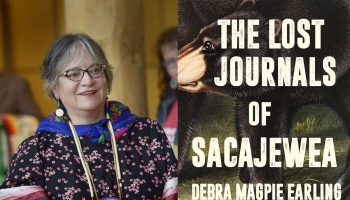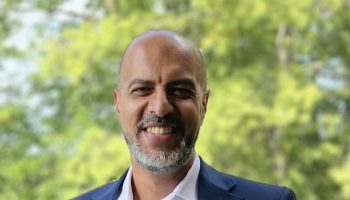
Susie Anderson
Staff Writer
Week Seven workshop participants with the Chautauqua Writers’ Center will learn how to adapt words for the screen and examine the elements of storytelling in nonfiction and fiction.
Valerie Woods will lead “Adaptation — A Singular Art (Film/TV)” and Marita Golden will lead “All Stories True.” Both workshops are available through Special Studies. Woods and Golden will present and read from their work at 3:30 p.m. Sunday at the Hall of Philosophy.
Woods began her career as an actress. As she began writing her own roles and writing for her friends, she quickly discovered a passion and talent for screenwriting. Furthermore, she discovered that writing relieved some of the pressure of acting.
“I will admit — I love pizza,” Woods said, “and so I don’t have to watch my weight as a writer, whereas when you’re an actor, it’s all about presentation.”
Freedom of food and expression combined into a passion for developing stories from page to screen. Woods is an Emmy Award-winning co-executive producer and writer for the 2023 Disney+ series “The Crossover.” She also worked as a co-executive producer and writer for the 2024 AppleTV+ mini-series, “The Big Cigar” and season two of the Netflix drama series “Sweet Magnolias.”
Woods admits she was “not a big TV person,” when she was accepted into the Disney Fellowship for screenwriting; still her screenplays landed her a job in TV. She has been writing for television ever since and is now working on novel writing.
For Woods, the art of adapting emerges in figuring out what participants want their final product to express. When she attended an early screening of Alfonso Curon’s “Harry Potter and the Prisoner of Azkaban,” she witnessed the power of narrowing down a narrative to serve a particular purpose.
“When you approach a novel or any project, make a decision of what your movie’s going to be about, or what your TV series is going to be about, and then extract those things,” Woods said. “As good as everything else is, you just leave it alone.”
While massive franchises such as Harry Potter consider the desires of the audience, Woods often looks to the advice of television mogul Shonda Rhimes who said that her first audience is herself.
“If she’s not entertained by it, she can’t write it,” Woods said.
In her workshop, Woods will encourage participants to choose art that entertains them and generate adaptations of public domain fairytales. While maintaining the intent and integrity of the original work, Woods wants participants to explore their desires in creating a new piece of work.
“I hope participants have the confidence to recognize the intent of a scene or an article or a game and keep that as their compass when they’re creating a new scene from a novel ,” Woods said, “because you’re not gonna write what’s in somebody’s mind.”
On Sunday, Woods will speak about her experience and potentially read from some of her work at the Hall of Philosophy alongside Golden, who will lead a generative workshop for fiction and nonfiction.
Golden is an award-winning author of 20 works of fiction and nonfiction including the novels The Wide Circumference of Love and After and memoirs including Migrations of the Heart, Saving Our Sons and Don’t Play in the Sun: One Woman’s Journey Through the Color Complex. She is a recipient of the Writers for Writers Award presented by Barnes & Noble and the annual Poets & Writers annual gala and an award from the Authors Guild, among others. Golden also served as the guest judge for the 2025 Chautauqua Janus Prize, which she will present to winner Stefan Bindley-Taylor at 5 p.m. Friday at the Athenaeum Hotel parlor.
Teaching fiction and nonfiction, Golden finds narrative truth in both genres.
“The lines of demarcation between the genres is arbitrary and basically a result of bookstores and the public industry and selling,” Golden said.
The best memoirs immerse readers into a narrative and “affect us the same way that fiction does,” said Golden, and the best novels make characters feel vulnerable, complex and real.
“One of the pleasures of reading is going into another world. You know the world is fictional, but you give over to the idea that is real,” Golden said. “That’s the beauty and the power of writing.”
Generating work with these effects in mind, Golden hopes to have participants leave the workshop with something they can continue developing. While creating an open and collaborative space for participants to generate, discuss and revise their work, Golden tells participants who feel daunted by writing to begin by putting pen to page.
“Once you start writing, you are a writer,” Golden said. “The process of writing will guide you because once you’re possessed with not just the desire to write, but the need to write, many of the answers that you’re seeking will come to you through doing the work.”




